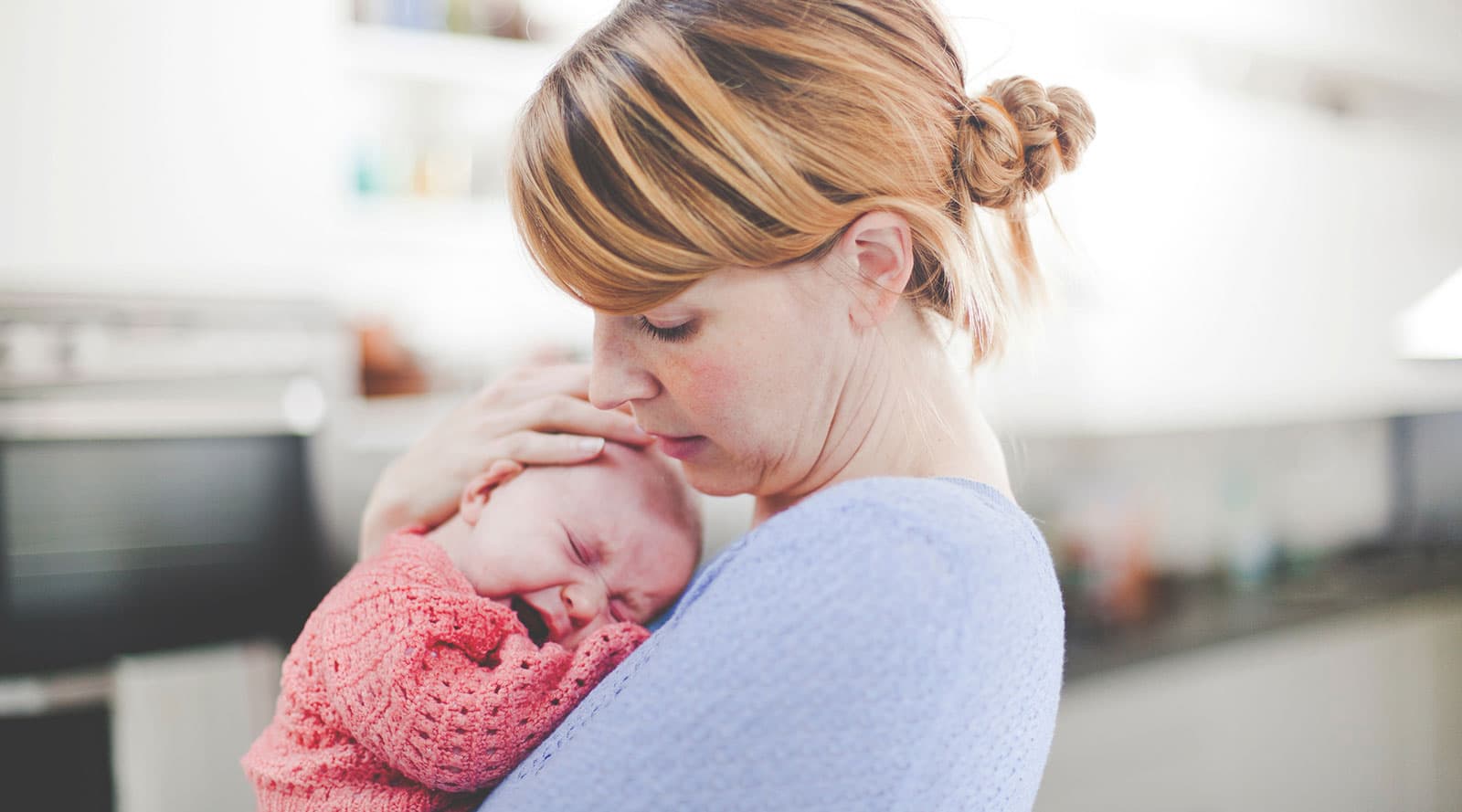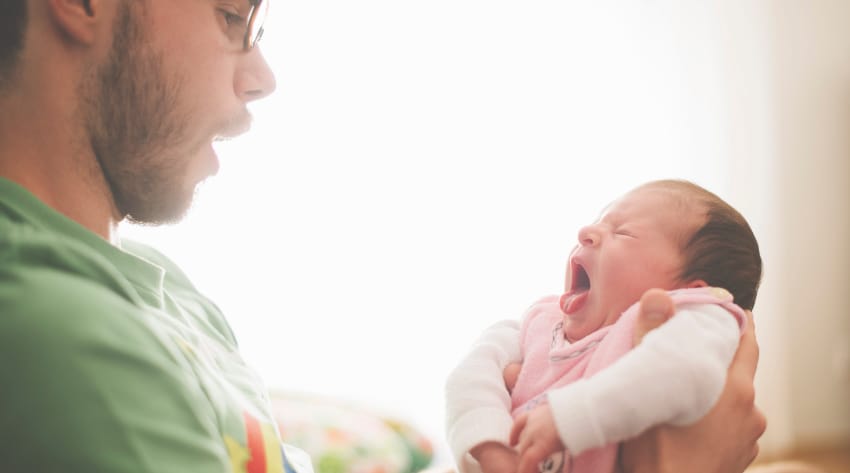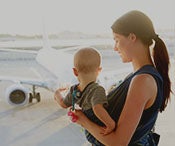Introduction
Newborns cry. A lot. And who can blame them? This brand-new world is a far cry from the ‘womb service’ they’re used to. Now baby needs to tell you what they want. And the only way they know how is to holler.
If you’re a new mum, chances are you’re probably wondering “why is my baby crying so much?” more than you thought you’d be. Luckily, after eight weeks, baby crying tends to tail off, unless of course they have colic, in which case it could be a bit longer. The most frustrating and potentially upsetting thing in the first few weeks of baby arriving is not knowing how to help them when they’re crying. Here are a few tips on how to understand what your crying baby is trying to tell you.
Why is my newborn crying?
-
I’m hungry
Your baby might suck their fists, lick their lips, or root around for a breast – even on dad or granny. The final resort is to howl for their lunch. Watch our responsive feeding videos to see if you recognise any of the signs.
-
I’m ready for bed
It’s very common for newborns to get over-tired. They need to sleep every 1-3 hours, roughly speaking. Before this, crying, staring into space, pulling at ears and closing fists are all signs they need some quiet time.
-
My tummy hurts
A baby crying after a feed could simply be wind. Nothing a burp (or bottom burp) couldn’t solve. Try a back rub or tummy massage to stop your baby crying. If that fails, maybe colic, reflux or lactose intolerance could be the culprits - always check with your GP or healthcare professional if you believe that any of these could be the reason, or if you are considering changing milk.
-
It’s all too much for me
In our efforts to soothe them we can sometimes overwhelm baby with enthusiastic rattling and cooing. If your baby rubs their eyes or turns away, a bit of quiet time and a cuddle in a dimmed room could be all they need.
-
I’m too hot or cold
As a general rule, babies need to wear one more layer of clothing than we do and be in a room between 16C-20C degrees. Don’t be fooled by cold hands, just feel the back of their neck or their tummy to judge body temperature.
-
My nappy is full
New babies need their nappy changed up to a dozen times a day. It’s one of the top reasons for a baby crying – always worth making it one of your first checks.
How to stop a baby crying
Looking after a newborn is no walk in the park but fresh air is the very thing that often helps soothe a tired or irritated baby. You’ll probably appreciate it too.
Some say monotonous motion or rhythmic sounds help to soothe because they remind baby of being in the womb. Try gently rocking to the sound of your shushing. Even a vacuum cleaner or washing machine could work. White noise apps are a handy thing these days too.
A warm bath can do wonders to soothe a crying baby. If yours is a water baby, you may literally hear them sigh with contentment as they’re lowered into the womb-like warmth of a bath. Babies often wriggle around at night with tummy aches as they try and digest their day’s intake – a gentle tummy massage before bed could aid wriggle reduction.
You can find more tips on settling baby in our article how to get your baby to sleep.










